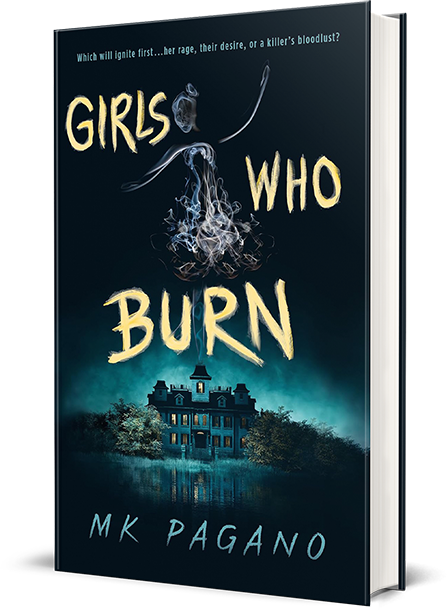MK’s Book Reviews: The Stand

I said a while ago that before the year was out, I wanted to have full reviews up of all my favorite books of all time…
That hasn’t been going so well, mostly because I keep reading new books I want to review. And I do believe the best time to review a book is when it’s fresh in your mind.
But favorites are favorites for a reason; the book I’m about to review I’ve read three times. And this time of year is the best time to read it, as the bulk of the action takes place in late summer. I first read this book while camping and looking at its cover still brings up memories of sitting on that island and looking out at the quiet world and imagining it without humans around to mess it up.
So let’s get into The Stand.
This was my first-ever foray into Stephen King. Confession: I am NOT a horror fan. NOT NOT NOT. I dislike gore. But an epic story is an epic story, and if I have to put up with some gore to get to it, then I will. (I did read It, after all.) And this one is definitely not defined by its horror elements (though they are still in there, in places.)
First, the synopsis, from Goodreads:
This is the way the world ends: with a nanosecond of computer error in a Defense Department laboratory and a million casual contacts that form the links in a chain letter of death.
And here is the bleak new world of the day after: a world stripped of its institutions and emptied of 99 percent of its people. A world in which a handful of panicky survivors choose sides — or are chosen. A world in which good rides on the frail shoulders of the 108-year-old Mother Abigail — and the worst nightmares of evil are embodied in a man with a lethal smile and unspeakable powers: Randall Flagg, the dark man.
This novel is the ultimate in post-apocalyptic novels. A virus gets out, most of the world dies, and the survivors have to rebuild society. And with the collapse of society comes about a (re?)emergence of mysticism into the world. There’s no full-on fantasy here, but there are shared dreams and prophecies and some epic good versus evil stuff. I’ve used it a few times already, but that is the word to describe this novel: EPIC.
As usual I’ll break this down into the great and then the less great (because good doesn’t cover it):
The GREAT
1. The characters You’d think that a book about the end of the world would have to be plot driven. You would be wrong. This book starts out with seemingly unrelated character vignettes: a blue collar widower in Texas, a pregnant unwed college student in Maine, a hungover one-hit wonder coming back to Queens, a deaf-mute vagrant hitchhiking through middle America. You get to know each of them intimately, which makes it all the more satisfying when they finally finally meet each other.
2. The setting It’s odd how a book concerned with the collapse of America can just be so … American. King describes in such gorgeous detail the Maine coast, the streets of New York, the flatlands of Nebraska, Iowa, Colorado, Vegas. It makes you want to hop in your car and just drive until you can’t anymore, just so you can see it all.
3. The realism of the collapse of society The scariest thing about the beginning of this book is that it just seems so plausible. The virus moves incredibly quickly, there’s an attempted quarantine, an attempted government cover-up, which as you can imagine, doesn’t work. And then there’s just a big empty continent with these few souls left, surrounded by the wreckage of the human race. It’s so scarily, vividly believable.
4. The moral ambiguity You do have two characters in this novel, one of whom is pure good, and the other pure evil, but the rest of the characters are all somewhere in between. I love gray-area characters. There’s a fat, awkward teenage boy who could allow his resentment at the world to turn him evil–or he could choose to be a good person. There’s a rockstar who could turn into a worthless waste–or he could save the world. The character arcs are, for the most part, fantastic.
5. The prose Stephen King can really turn a phrase (with a little help from The Boss):
.. and others were crying, crying for what was lost and bitter, the runaway American dream, chrome-wheeled, fuel-injected, and stepping out over the line, and suddenly… it was September 29, the Yankees were only a game and half behind the Red Sox, and all things were still possible. There were fifty-five thousand people in the Stadium, all standing, the players in the field with their caps over their hearts, Guidry on the mound, Rickey Henderson was standing in deep left field (“–by the twilight’s last gleaming–“) , and the light-standards were on in the purple gloaming, moths and night-fliers banging softly against them, and New York was around them, teeming, city of night and light.
Larry joined the singing too, and when it was done and the applause rolled out once more, he was crying a bit himself. Rita was gone. Alice Underwood was gone. America was gone. Even if they could defeat Randall Flagg, whatever they might make would never be the same as that world of dark streets and bright dreams.
Shivers.
The less great:
1. The unnecessary meanderings I never read the originally published normal-sized novel; only the “complete, uncut” version, so I can’t compare. I’m not telling you to read the shorter one though because while this novel was over a thousand pages, it was so good I never wanted it to end. BUT–there were parts I could have done without. Namely, the endless meetings and bureaucracy that goes along with the reforming of society, and also the entire section with “The Kid.”
2. The grossness I know Stephen King can’t help but be gross in places–it’s his thing–but I could really have done without some stuff, namely the torture, the graphic descriptions of people’s swollen lungs, a certain horrifying-sounding television show Frannie watches as the world collapses, and a certain scene with a dead body in a porta potty in Central Park. Ew, shudder, shudder, ew.
3. The climax Am I really recommending a book with a bad climax? Yeah. Because the rest of it was so great. But the climax … Stephen King even admits in On Writing that he started this novel with no idea where it was going (a true pantster in every sense of the word) and got stuck at the halfway point. He had all these characters and no idea what to do with them. Unfortunately, that becomes pretty clear in the way he chooses to have the climactic scene happen. I don’t want to spoil anything, and please go read it and disagree with me, if you’d like. But it read to me like definition of deux ex machina. (I do like the conclusion, though.)
… and I don’t have anything else bad to say about it. This is such an awesome book. (The ’90s miniseries: somewhat less awesome. I’m still holding out for an HBO miniseries. With Matthew McConaughey as Randall Flagg. EPIC.)
Have you read The Stand? Will you? Let’s discuss!


but but but 1100 pages?! 🙁
I couldn’t read It either, to scarey and to long and wasn’t getting anywhere.
Yes–but The Stand is so worth it!
IT was difficult, but in the end I’m glad I read it. But The Stand is definitely way better, IMO.
I searched and searched for the original cut of this book to no avail. Still beyond glad I read it, but from what I understand the stuff cut from the original I wouldn’t have missed (a lot of Trashcan man).
[…] The Premise Ever since reading The Stand, I’ve thought about my role in a post-apocalyptic world. (That’s normal, right?) I […]
[…] Keely from The Spectacular Now, Malcolm Reynolds and Jayne from Firefly, Larry Underwood from The Stand, and oh so many […]